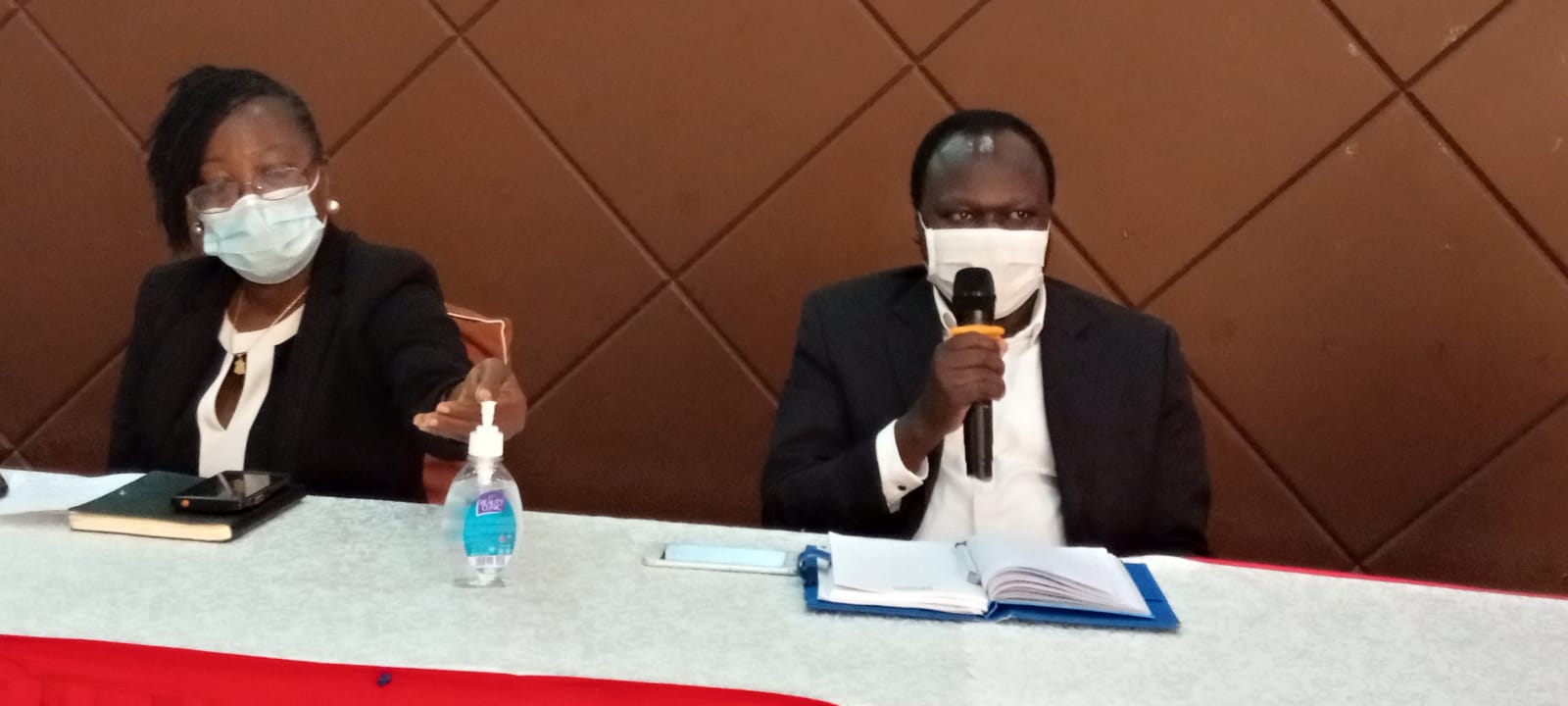Liberia Concludes a Three-Day Workshop to Map Resources and Multisectoral Partnership Coordination for the Implementation of the National Action Plan for Security (NAPHS)
 Monrovia, 27th August 2021: Following the national review of the implementation progress and challenges of the NAPHS in Liberia since it’s development in 2017, the Ministry of Health (MoH), with support from the World Health Organization conducted a three-day workshop on resource mapping and multisectoral partnership coordination for the implementation of the NAPHS using the WHO resource mapping (REMAP) tool to identify health security projects.
Monrovia, 27th August 2021: Following the national review of the implementation progress and challenges of the NAPHS in Liberia since it’s development in 2017, the Ministry of Health (MoH), with support from the World Health Organization conducted a three-day workshop on resource mapping and multisectoral partnership coordination for the implementation of the NAPHS using the WHO resource mapping (REMAP) tool to identify health security projects.
The face-to-face workshop held under strict observance of COVID-19 SOPs; hand hygiene, use of masks and small working breakaway groups brought together over 65 participants including representatives from line ministries: Ministry of Health, Ministry of Agriculture, Ministry of National Defense, Ministry of Labor, EPI, EPA, NPHIL, County Health Officers, and experts from partners, including FAO, World Bank, US-CDC, USAID, IRC, AFENET, and WHO.
The workshop aimed at providing better visibility of available and potential resources for health security in order to accelerate the implementation of the NAPHS; facilitate the sharing of information between the country, partners and donors, including data on partner investments and activities, on country needs and gaps and on the effectiveness of funds allocated to preparedness activities for health security; encourage collaboration and synergies through the harmonization of the efforts of the country, donors and partners in order to prepare the strengthening of national capacities for prevention, detection and response as well as other IHR core capacity areas; and provide the country with evidence-based information to measure the effectiveness of investments, as well as for the allocation and distribution of resources needed to strengthen health security.
Speaking during the official closing ceremony, the Honorable Minister of Health Dr. Wilhelmina Jallah thanked WHO, US-CDC, USAID, IRC and other partners for the commendable support to the government of Liberia. “Looking back from the time of the Ebola outbreak, Liberia has now the capacity to detect and respond timely to any threat entering the country and has the capability to bring together partners to amount a strong response as evidenced with the COVID-19 pandemic.” Dr. Jallah said.
She however cautioned the different sectors to be prepared as mapping resources can sometimes be challenging, may not always go as planned, and should take into consideration value for money.
Dr. Yoti Zabulon, WHO Acting Representative in Liberia commended the Ministry of Health for ensuring a mechanism that enables all partners to work together to discuss priorities, identify synergies, areas for multisectoral coordination, and collaboration is in place. “What we are looking at here is not only for the Ministry of Health but threats and solutions to threats beyond the health sector and no one individual partner can support the country alone” he said.
He commended the government for keeping on track despite the COVID-19 pandemic and for the demonstrated capacity to contain most of the threats at their source with limited transmission.
Speaking on behalf of US-CDC, Dr. Theresa Kanter said the real value of the exercise lies in how the government has responded to COVID-19 outbreak. “I hope that the efforts to strengthen, detect, prevent, and respond capabilities will further continue for Liberia”. She said
For her part, Dr. Fatima Soud, USAID Representative in Liberia reaffirmed that her organization will use this information to plan and address the gaps especially in 5 specific areas supported by USAID.
To advance implementation of the NAPHS, the government of Liberia, WHO and its partners will need to; i) use the REMAP data to accelerate collaboration in order to mobilize resources for the implementation of priority activities of the NAPHS; ii) discuss the possibility of mobilizing technical assistance through the Global Strategic Preparedness Network (GSPN) for the implementation of the priority activities of the NAPHS; and iii) Use the resource mapping tool to periodically monitor the progress of the NAPHS and analyze the impact, and discuss the results during regular meetings.
Moving forward, the government, WHO and partners will continue the exercise to complete the resource mapping and update the tool to capture information from other partners; and the REMAP data will be validated and published on the WHO Strategic Partnership Portal (SPH Portal), which will be used for information sharing and as a platform for collaboration and advocacy to advance the implementation of the NAPHS of Liberia. (https://extranet.who.int/sph).
Furthermore, to ensure capacity building, WHO will train national focal points in the use and updating of the REMAP tool and assist Liberia to periodically update the resource mapping at the national and subnational levels.
Health Information and Promotion officer
Tel : +(231) 776532008
Email: lakev [at] who.int (lakev[at]who[dot]int)
Epi-Surveillance/IDSR Team Lead
WHO-Liberia
+ (231)776106795
drmondayj [at] gmail.com (drmondayj[at]gmail[dot]com)



